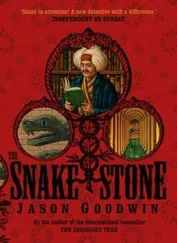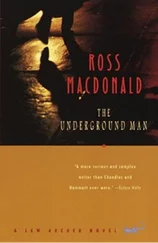But move he had and even after years of infesting the place, it still looked as if its occupant had never intended these apartments as his permanent residence. There was insufficient shelving for his books and these stood in piles or collapsed in heaps about his chair and on top and underneath of the table. He had a big globe, whose dominant colours seemed to be red and blue. There were several oil lamps, whose wicks it was always my first job to trim and so our sessions of study were never interrupted by the going down of the sun.
What never ceased to puzzle me was why Merriweather was compliant with Elijah’s strange and often inconvenient scheme. Just when we seemed at our busiest and I was hurrying this way and that with dinner or tending to newly-arrived horses, the bell would ring and Merriweather might curse but he would always send me upstairs where Putnam would be waiting, book in hand. I could only figure he was pandering to the whim of his only resident guest.
Elijah Putnam had been a part of my life for almost as long as I could remember and yet I really knew very little about him. It was his gentle wife Rosalie I remembered first and who was, for a tragically short time, my mother. Elijah had been then an indistinct figure backgrounding those days and he only showed an interest in me when I grew a little beyond my infancy.
One day in particular I remember. I have always thought of it as the day he discovered me. I had been sitting by Rosalie as she plied her needle amongst a design that included a small house with roses around the door and flowers in its garden. The fall sun was shining low and yellow gold through the trees that shaded the lawn beyond the window. It was a little after the time we were used to expecting Elijah home from the schoolroom and Rosalie had been remarking his tardiness, when the door swung open and Elijah himself strode in.
She put down her sampler and stood to greet her husband but he ignored her proffered kiss and took me up in his arms, an action that both surprised and alarmed me. He carried me to the window where the rays of the setting sun dazzled me and then he turned my head this way and that and seemed to want to see me anew from every angle. At last he put me back upon the sofa and stood, peering down at me, with his hands upon his hips and his chest thrust out. He was smiling broadly and, because his countenance was more usually of a severe set, the effect was remarkable.
‘Well,’ he said, his thick red hair shot through with the dying rays of the sun, ‘this changes everything.’
IV
And presently I will tell you of how everything changed. As people often remark, it is a curious story. But no doubt you remember a masked rider astride the Particular’s chestnut mare and would rather follow him, because he was fast. When I met up with this man, he was in company with one of the most singular individuals it has ever been my fortune to meet.
The morning had been one of routine as I hurried about from one store to another, settling accounts, gossiping with shopkeepers and chewing the fat and plugs of tobacco with young men of my acquaintance. When I had done all I had to do I availed myself of a little leisure and strolled down Main Street, gravitating towards the environs of Cissy Bullock’s house. It was a striking residence, its clapboarding newly white-painted and its garden still in bloom. It was one of the few larger houses to escape molestation when the Yankees had ridden through the town a few years ago and that only because it became the temporary headquarters of a General Crabtree. Traces of the General’s occupation could still be seen, Cissy had told me, in the cigar burns on her father’s desk and in the light squares of wallpaper against which had once hung some valuable paintings.
There was no sign of Bullock himself so I swung a leg over the picket fence and edged around the corner of the house to the source of the music that floated on the air. Through an open window I could see Cissy sitting at the piano. She had on a pretty lemon dress; her hair, that she usually tied up, was let down over her shoulders and it seemed to me I could smell her soap from where I stood. I never saw any picture that looked half as pretty nor mountain stream look an eighth as pure as Cissy did then as she gave herself up to the music, unaware of my proximity. What torture it was to stand within inches of my beloved. I yearned to make my presence known.
But to have done so would have brought trouble not just for me but upon Cissy herself. Bullock might be anywhere about the house and I contented myself with listening to the nocturne and astonishing myself with the brilliance of her hair and delicate tones of her skin until I heard footsteps in the hall. At that juncture, I withdrew and retrudged through the town, heedless of the puddles and mud, oblivious even to the locomotive that must have crashed over the rails right by me, spitting sparks and cinders as it braked for the junction, where I found it, minutes later.
Our chestnut mare was tied up by the tracks still snorting and breathing hard after her exertion. I was curious about her rider and walked alongside of the train from which folk were alighting and carrying off trunks and I peered through the windows wondering if maybe our guest had ridden hard to make the train and be miles away before we discovered his unsettled hotel bill. The man seemed not to be aboard though I was unsure if I would have recognised him anyway. I only saw him once the night before when he had inquired whether there was a printing shop in town and nothing about his appearance or demeanour had been memorable.
I must have been possessed of more striking aspect than he, as when I turned from the last window I found the man I sought standing before me.
‘Pardon me, but ain’t you the manager of the brick hotel? I’d have knowed that hat anywhere. Mighty fine. Unusual, too.’
I admitted that you didn’t see many like it, any more. Was there something I could do for him, I asked.
‘Well, yes, I think there is,’ said the man, who I now noticed was rangy and tall, with wispy wires of hair that escaped from under his hat like stuffing from a chair. ‘I’m in urgent need to speak to someone in authority at that hotel and who knows this town like the back of his hand.’ I assured him that I was such a man and he took me by my arm and led me back to the mare. A man was standing in a buggy, distributing handbills to a small crowd of people and declaiming about something I hadn’t time to get the sense of. The man at my side said, ‘That’s a very important man, in that air fly. Very important for you and this here town. He’ll ‘spect your best room. It’s free, ain’t it?’
I assured him we had a good room vacant at that time. He mounted the buggy and whispered something to his companion, who wished the dispersing crowd well and turned to me.
‘Your servant,’ said the second man in a voice so rich and deep that I heard in it something of the quality of polished mahogany.
Perhaps you have at some time been in the presence of someone whose whole effect is to make you feel under-dressed, under-educated and under-prepared for the occasion? Such was the case then, as I took in the magnificence of the man who now extended a manicured hand. I guessed that he was perhaps fifty years old but he may have been younger or older. His hair was long but well-groomed and he wore what must have been a new city-style of hat, for we had none such here. His suit fitted him no worse than his skin and he gripped a polished, expensive-looking, leather valise. Something glinted upon his waistcoat as he pulled out and glanced at a fancy silver watch.
When he regarded me again, I was impressed by his deep-set, pale blue eyes, which I can only describe as being like beams that shone right inside my head.
Читать дальше












